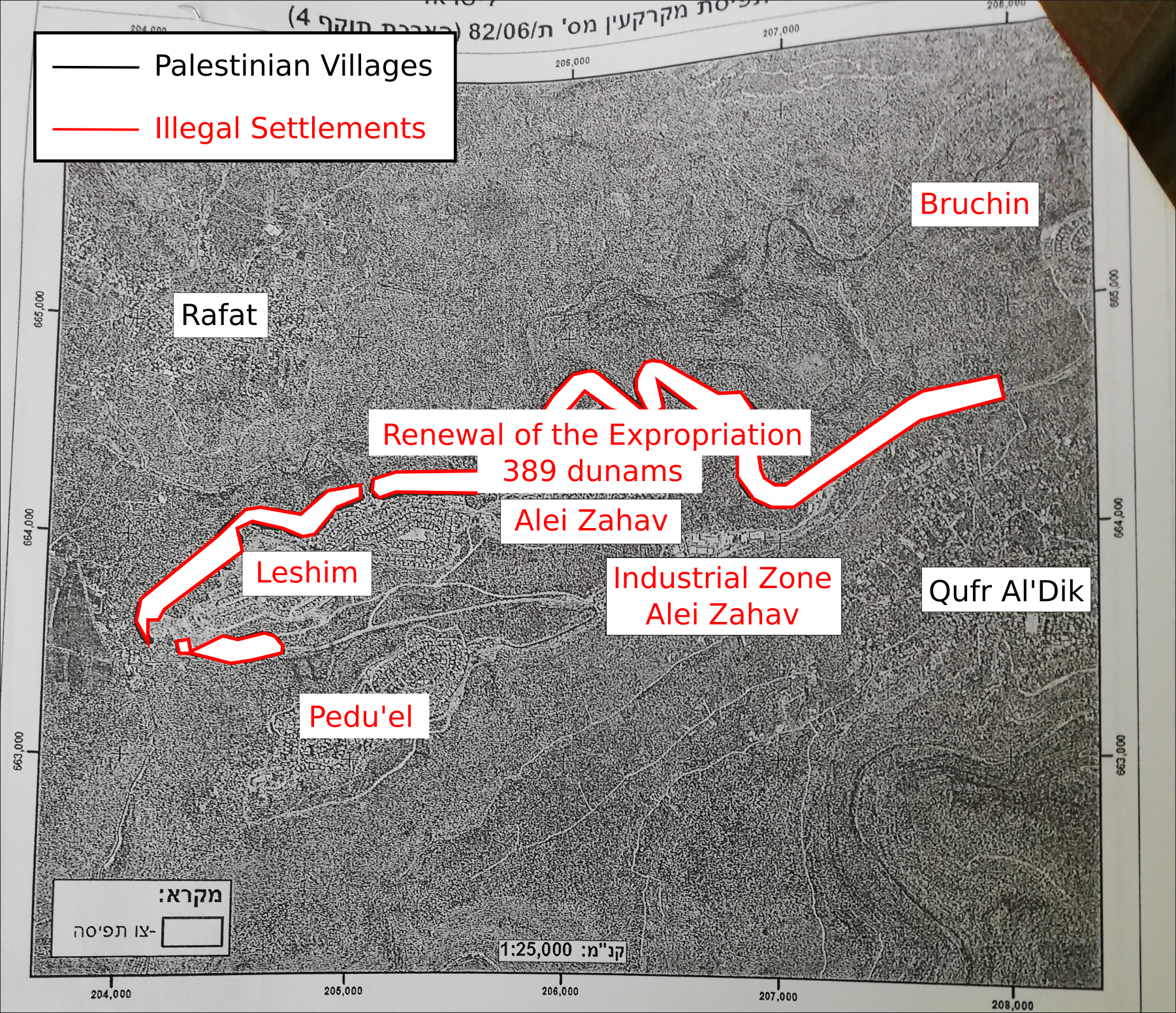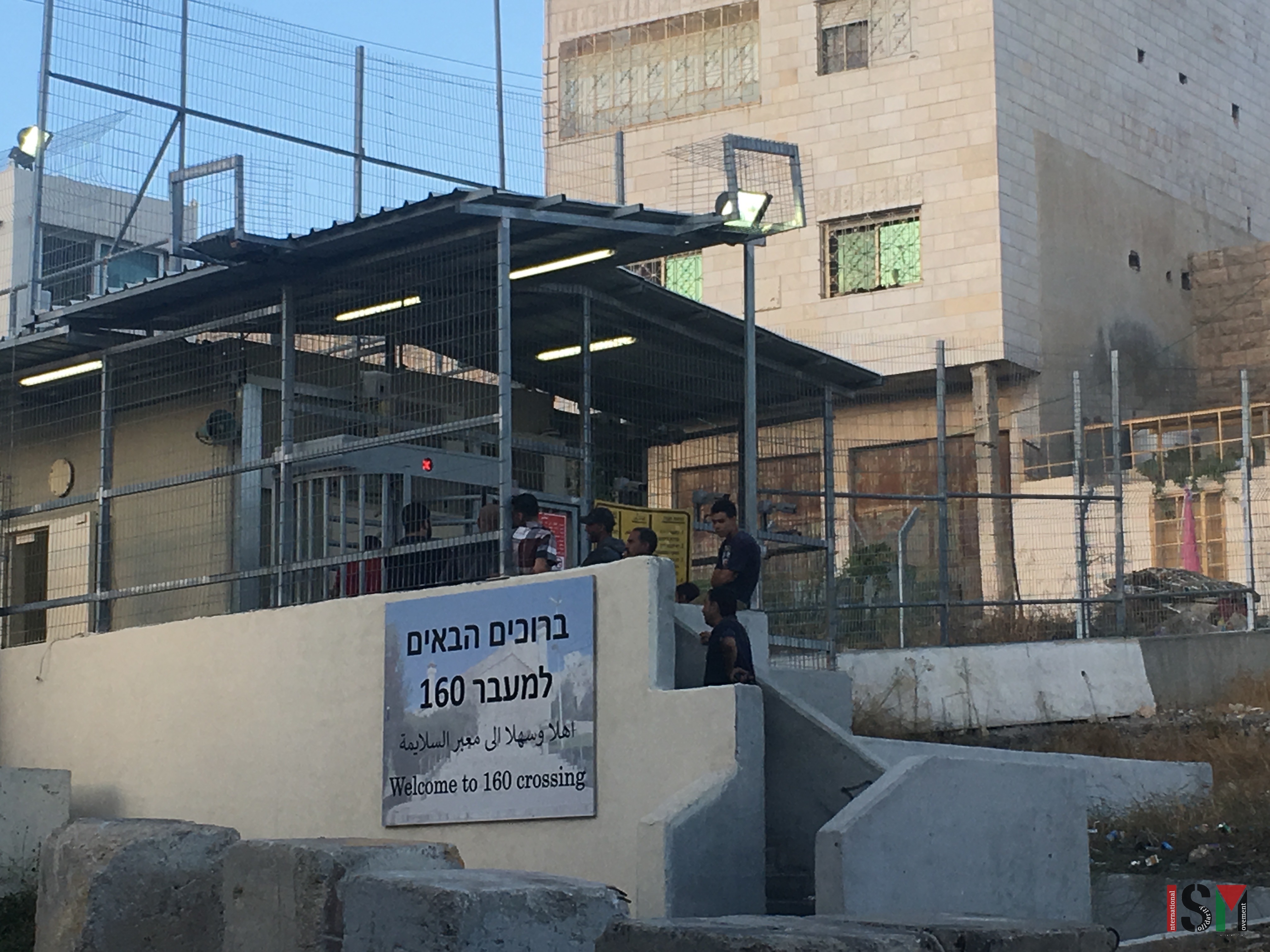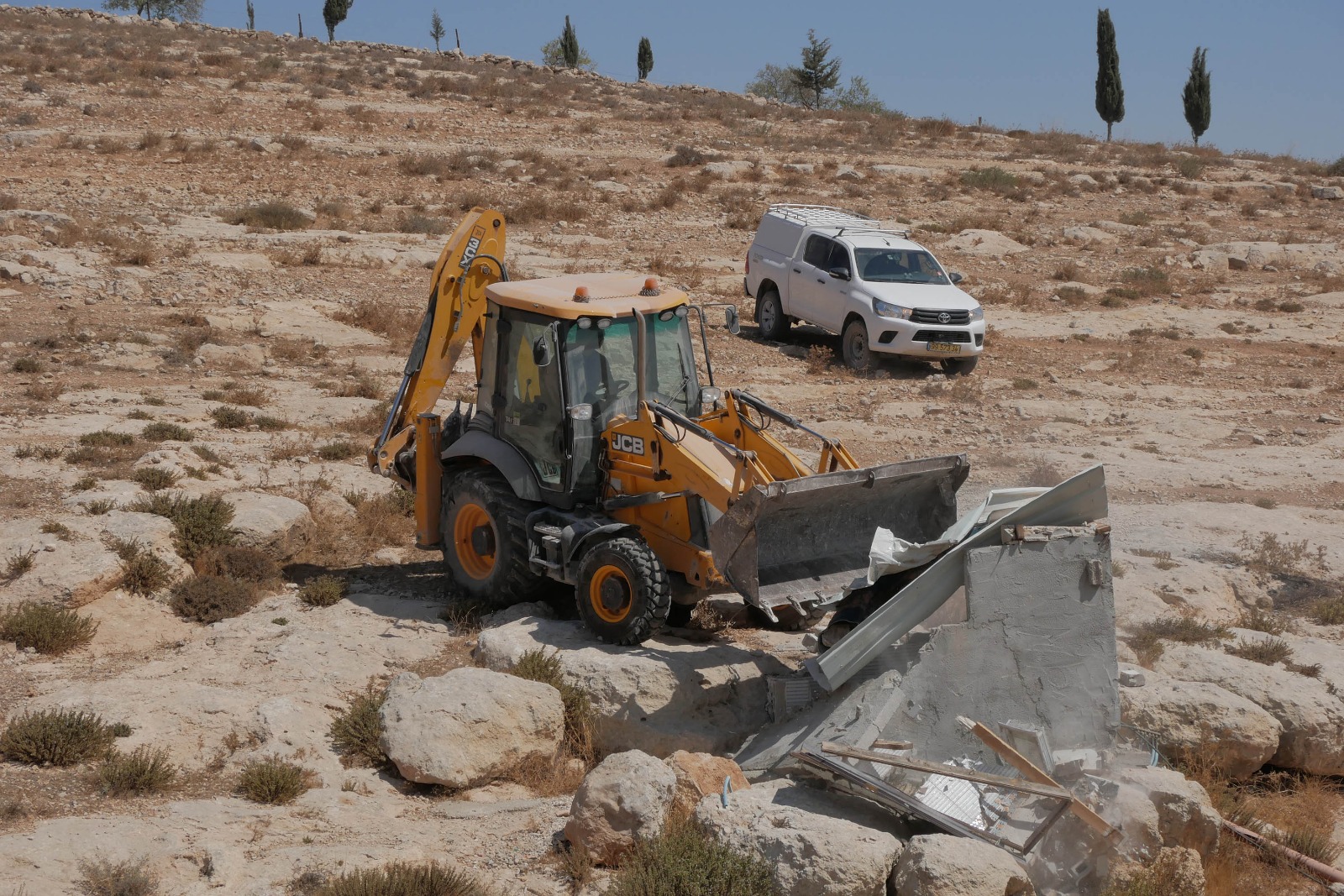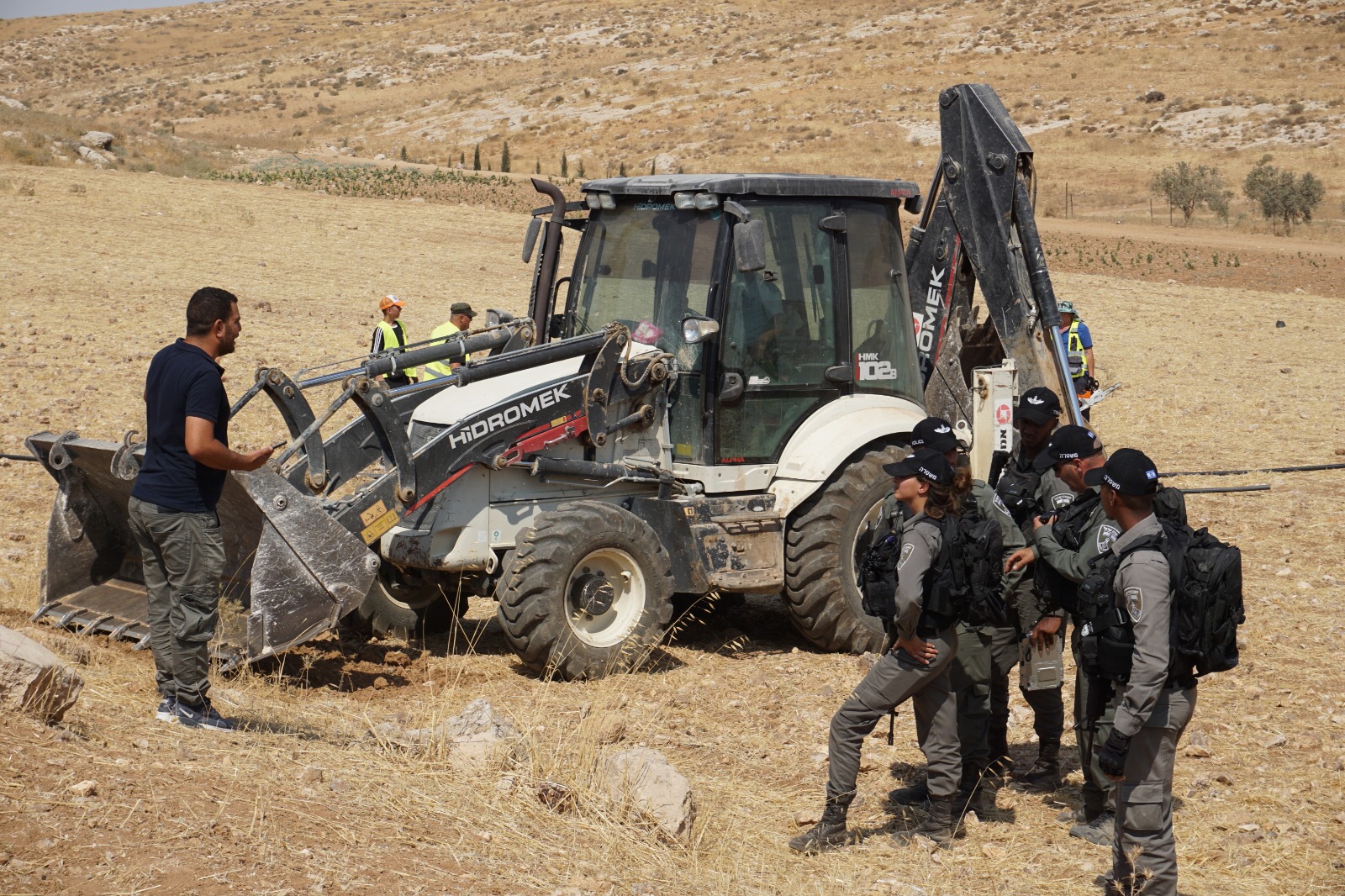Tag: Settlers
-

Report on Land Confiscations by the Israeli Army in Salfeet and Qalqilya Area
The Israeli Occupation Forces have recently announced a new series of land seizures in eleven villages in Salfeet and Qalqilya, Occupied Palestine, a move that will affect almost 1 million square metres of Palestinian land.
-

Waiting at a checkpoint
An ISM activist writes about her experiences volunteering in Hebron (Al Khalil) during Netanyahu’s visit to the city.
-
Statement on “postponement” of Regavim London talk due to activist pressure
Yesterday, UK Lawyers for Israel (UKLFI) announced the “postponement” of a talk by extremist pro-settler group Regavim in London due to opposition from British, Israeli, and Palestinian activists. Regavim, which receives funding from the Israeli government, is not only anti-Palestinian and openly racist, but also lobbies for the ethnic cleansing of Palestinians from the West…
-
Call to Action: Join London protest against Israeli demolition ‘charity’ Regavim
On September 1st, UK Lawyers for Israel is hosting a talk by Regavim, a pro-settler NGO with charitable status, pivotal in speeding up demolitions of Palestinian homes across the West Bank and displacement of Bedouin villages in the Negev. What is Regavim? Regavim, ‘dedicated to the preservation of Israel’s land’, petitions courts to demolish homes…



